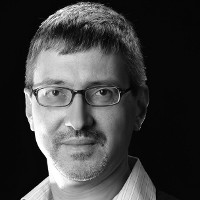I was at the annual Africa Hotel Investment Forum in Nairobi in early October. Organised by Bench Events, which also holds similar conferences in the Middle East, South America and North Africa, it’s the premier forum in Africa, attended by investors, operators and, of course, consultants such as me.
There are many such ‘talking shops’ held across the continent, but AHIF really is the tops, not only because it gets a good number of delegates and speakers (around 600 this year), but also because the quality of those delegates is the best.
The support of the Kenyan government, including the Ministry of Tourism & Wildlife, the Kenya Wildlife Service and the Tourism Finance Corporation was also great. This is a country that really ‘gets’ tourism, and is totally open – at the end of the conference the Cabinet Secretary (Minister) of the Ministry of Tourism & Wildlife not only extended an invitation to the delegates to drop in and see him next time they visited Nairobi, but also expressed a wish to host the event every year.
Here are some of the main issues that the speakers raised, during the plenary sessions and the various round tables.
Daniel Silke started the proceedings with his usual quick-fire, passionate and fascinating round-up of information and forecasts regarding the environment in which hotels work, as well as the context of Africa in ‘a global storm’. The economic growth forecast for the continent is 4.2% in 2019, second globally only to Asia, but way ahead of Europe (1.9%) and North America (2.3%). However, these macro figures hide big differences between the countries of Africa.
Nigeria doesn’t feature, partly because of the size of its economy – it doesn’t grow at the rates shown – and partly because it has pretty low growth currently, with forecasts much lower than the 6%+ of the Top 10.
I frequently, in this column and elsewhere, speak about the need to create jobs, and the ability of the tourism industry to do so, and Silke provided the mind-boggling statistic that there is a need for 18 million new jobs every year to keep up with population growth – that’s 50,000 per day! One third of those jobs are needed in Nigeria.
My colleague Belinda Nwosu led a well-attended round table on human resources.
“The elephant in the room,” she said, “is Human Capital Development. It’s there, you know it’s there, and it’s really big, but no one’s talking about it.”
The conclusion was that developing human capital in Africa requires a concerted effort between investors, operators, governments and educational institutions.
Laurent Schatzmann of the Swiss Education Group, one of the round table leaders, opined that human capital development strategies need to be incorporated into the investment strategies of hotel companies (investors and operators). “Without this, the risk of running aground is much higher” he said.
As a follow-on, there was a Student Workshop with the subject ‘Developing a Career in Hospitality & Tourism’, with close to 200 students attending from Utalii College, Boma International Hospitality College and Strathmore University, all in Nairobi. The idea of bringing together a group of senior industry practitioners to speak to students about their careers, and how they got there, was brilliant. At the end of the workshop, the enthusiasm on the students’ faces was truly rewarding.
From the operators, we heard from Chris Nassetta, the President and CEO of Hilton, that his company is investing $1 million to promote sustainable travel and tourism in Africa. Hilton is in the vanguard of sustainability and environmental protection in Africa, and has launched its ‘Travel with Purpose 2030’ goals, aiming to double its investment in social impact and halve its environmental footprint.
The organisers of the Forum went further than just the speeches, and organised an auction at the evening reception at the Fairmont the Norfolk Hotel, hosted by Accor and General Manager Axel Hauser. The auction was in aid of the David Sheldrick Wildlife Trust, and raised $38,000 for baby elephant adoptions and overnight stays in luxury lodges.
West Africa’s Mossadeck Bally, the Founder and CEO of Azalaï Hotels, was honoured with the inaugural AHIF 2018 Leadership Award. Mossadeck started in the hotel industry in 1993 when he purchased the Grand Hôtel de Bamako from the Malian government; there are now seven hotels in the chain, and five others in the development pipeline. In his acceptance speech, he made clear his support for the focus on human capital in the hotel industry, with his wish to see a hotel school in every country in Africa.
It was a three-day conference, and I can only skim the surface in this column, drawing out two of the main themes – a focus at all levels and by all players in the industry on human capital development, and on sustainability.

